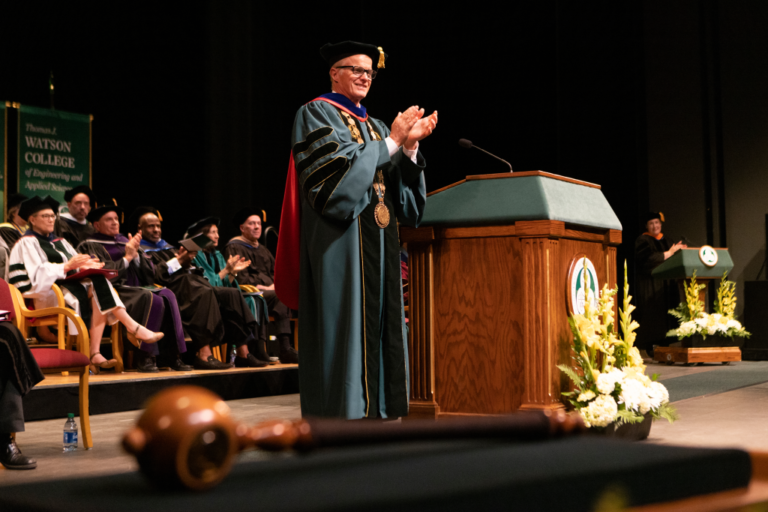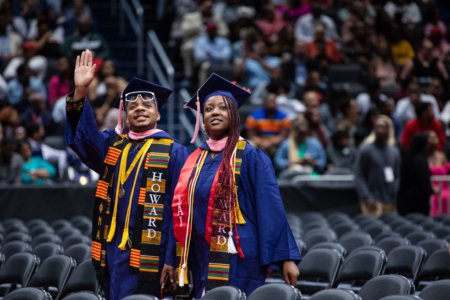
Today’s political landscape is not easy to navigate but the right leaders to step up and execute change has never been more crucial. These leaders need to know how systems have worked in the past and have the latest research to support what they hope to implement in the future. If this is the future you envision, consider an advanced degree in political science.
If you want to pursue a career in government, the nonprofit sector, politics, law, public interest groups, research firms, or academia, a master’s in political science would help pave the way. While a master’s is the minimum qualification to become a political scientist, a PhD will allow you to conduct independent research and teach political science.
The beauty of this degree is that there are a wide array of specialisations, so you can pick an area that suits your interests. Choose from Political Behavior and Identities, Political Institutions, American Politics, Political Economy, and International Relations, to name just a few. Numerous job opportunities are available and the prospects are projected only to get better.
According to the US Bureau of Labor Statistics, the median annual wage for political scientists was US$128,020 in 2022. The job outlook is projected to grow 7% from 2022 to 2032, faster than the average for all occupations. If you are equipped with a bachelor’s degree and ready to progress in the field, a master’s and or PhD from these leading institutions is for you:

Located in Central New York State, Binghamton University benefits from a lower cost of living. Source: Binghamton University
Binghamton University
The Political Science Department at Binghamton University (State University of New York) is ranked 19th in the world, offering both Master of Arts (MA) and doctoral (PhD) programmes that empower students to make a difference.
The programmes in this department are organised based on two convictions. The first is that rigorous research in political science requires specialisation. Finding a niche that interests you in this field is essential. The second is that all social sciences increasingly rely on systematic evidence and quantitative analysis.
For the master’s programme, there are two tracks to choose from. One requires you to write a master’s thesis, while the other entails a comprehensive exam. MA students can choose specialisations in topics such as international relations and foreign policy, human rights, political parties, and campaigns and campaign finance. Regardless of your chosen path, you’ll emerge from the department with advanced training suitable for policy analysis, journalism, or other professional careers.
The PhD programme is ideal for those who want to continue their professional and scholarly development to become full-fledged political scientists through innovative teaching and producing original research. Binghamton candidates are trained to conduct rigorous quantitative research on areas that would make a difference in the world, like people’s rights, like basichuman rights, voting rights andthe right to be represented, and the right to safety and security.
A highlight of Binghamton Political Science is the small class sizes, which allows for close interaction between graduate students and faculty. In the past, this has resulted in graduate students being co-authors of conference papers and articles with the faulty. Such experiences have opened doors for students in academia, research institutes, government, and private industry. PhDs have accepted jobs at McGill University, University of Strathclyde,, Leiden University, University of Georgia, Kansas State, University of Oklahoma, University of Mississippi, University at Buffalo (SUNY), Knox College, the University of North Texas, various private sector and non-profit organizations, and more.

Many students from the Department of Political Science publish articles even before they graduate. Source: University of Illinois Urbana Champaign
University of Illinois Urbana Champaign
The University of Illinois Urbana Champaign’s Department of Political Science has a highly selective graduate programme. Admitting a small group of applicants ensures that each individual can work closely with faculty members. This also means that many students have published articles — alone or in collaboration with colleagues or faculty mentors — while still in school. This kind of exposure and experience in a supportive and collegial environment is what makes this department’s programme ideal.
There are plenty of research opportunities available for students. The university is part of the Consortium for Institutional Cooperation (CIC), which is made up of 10 universities and the University of Chicago. Membership means that students can take part in any programmes across all CIC institutions. Highlights include the Michigan/ICPSR summer methods program and the Indiana University language programs. There are even CIC video courses so that you can be in contact with faculty and students from other universities.
Those interested in teaching should note that the school offers graduate students the unique opportunity to earn a Graduate Teacher Certificate and an Advanced Graduate Teacher Certificate. Students may also embark on the PhD programme to become college and university professors. PhD placements are maintained to ensure that you find the correct position once you receive your degree. Besides prestigious schools and top research universities, graduates have also gone on to public service or found employment in the private sector.

The Charles and Louise Travers Department of Political Science is one of the top political science departments in the US. Source: University of California, Berkeley
University of California, Berkeley
Ranked among the top political science departments in the US, The Charles and Louise Travers Department of Political Science at the University of California, Berkeley, has trained some of the world’s finest scholars and teachers in the field. “At the Charles and Louise Travers Department of Political Science, we welcome open intellectual exchange and debate on these and many issues in our classrooms, our research, and our public engagement,” says Susan Hyde, professor and Department Chair. “We are proud of our reputation as a flagship public institution and one of the very best political science departments in the world.”
The department values theoretical diversity, intellectual breadth, analytical rigour, and scholarly excellence. Leading these values are over 50 faculty and lecturers, each performing research in one of the 11 subfields on numerous special topics. Students and faculty also work with over 20 specialised and interdisciplinary institutes and centres around campus. These mainly explore issues relating to political science and our world today.
The PhD programme, in particular, has two phases: coursework and examinations and dissertation research and writing. These take about five to six years, which includes three years for candidacy and two or three for dissertation research and writing. Graduates from this department have been able to secure jobs or faculty and postdoc positions at the most competitive institutions in the US and abroad.
*Some of the institutions featured in this article are commercial partners of Study International










